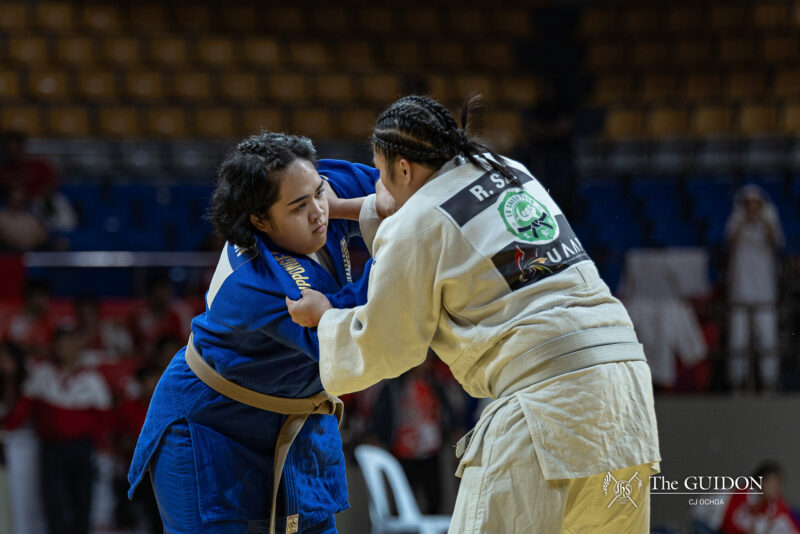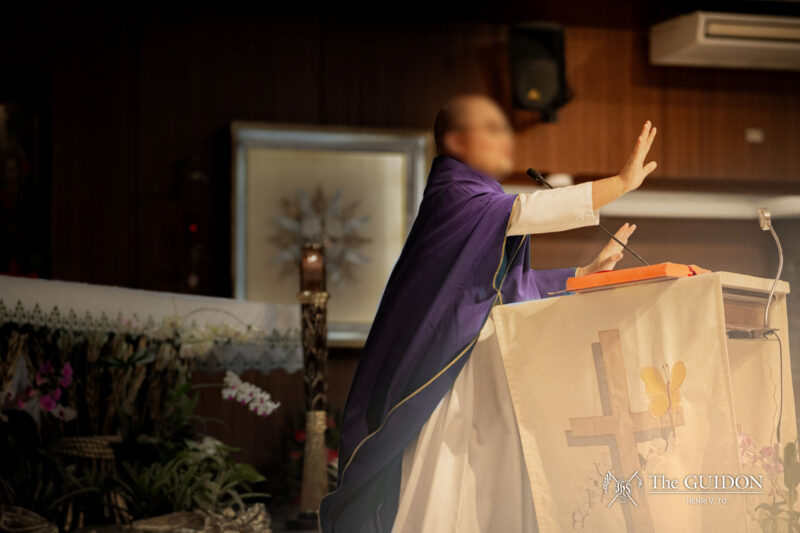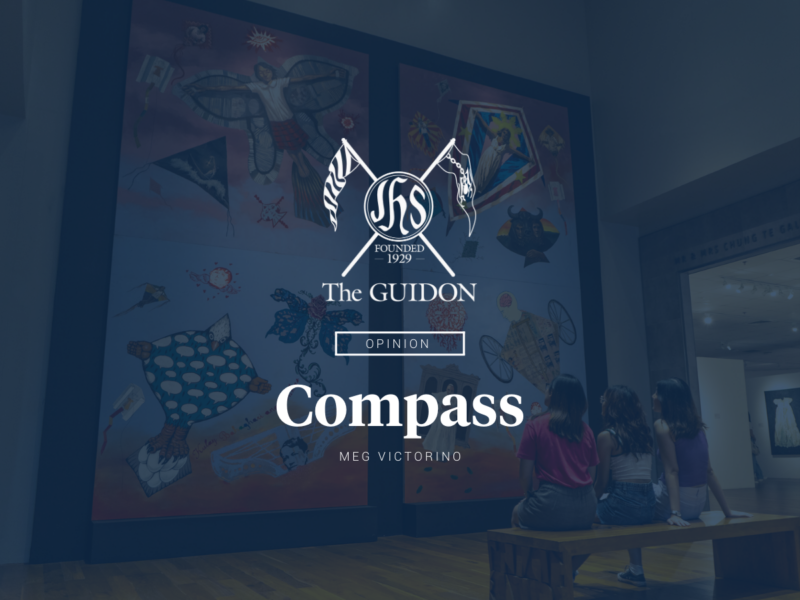
STUDY TIME. The University Athletics Office recently opened the new athletes' study hall in the third floor of the Blue Eagle Gym. Photo by Kitkat S. Lastimosa
RICHMOND OILERS Head Coach Ken Carter made headlines in local newspapers in 1999 when he locked down his team’s gym in Richmond High School, San Francisco, all because his players did not meet the required 2.3 grade point averages. In the 2005 film adaptation of the story called “Coach Carter,” Samuel L. Jackson, playing Carter, delivered one of the movie’s most striking lines: “They are student-athletes. Student comes first.”
Like Richmond, Ateneo is an academic institution home to talented student-athletes. Ateneo, however, is a university where academic standards are not only higher, but also more challenging. How exactly does one put “student” before “athlete?”
Mens sana in corpore sano
A student-athlete is generally a duly enrolled student who officially represents the school in sporting events. For Jonas Ramos (BS ME ’09), however, the Blue Tankers’ former team captain, the Ateneo student-athlete transcends this notion.
“These guys should possess the qualities of leadership, diligence, perseverance, honesty, respect for authority, sportsmanship, and above all else, the uncanny ability to balance responsibilities coming from both fields and do well in both,” he says.
The school has recognized Ramos by granting him the Ambrosio Padilla Award, an award given to student-athletes for academic excellence, which in his case is attested to by his graduation with magna cum laude honors. On the other hand, his excellence in sports can be seen in the fact that he is part of the relay team that holds the record for the 4×50 medley relay.
While UAAP rules require athletes a minimum of only 12 units, Ateneo demands a minimum QPI of 1.8 for freshmen and sophomores, and 2.0 for juniors and seniors. Failure to meet these marks would lead to academic probation, making one ineligible to participate in any of the UAAP sporting events or even the training sessions. This was the case for Blue Eagle Ryan Buenafe last season. However, he has already successfully returned to the lineup to aid the team’s five-peat campaign.
On the other hand, expulsion will be carried out if the student-athlete on probation fails to meet the required QPI in the following semester. Last season, the Lady Tankers lost Season 73 Most Valuable Player Jiji Cordero when she did not meet university academic requirements. The Lady Paddlers also lost prized recruit Nikki Publico the same year.
“Mahirap maging student-athlete sa Ateneo (It’s hard to be a student-athlete in Ateneo),” says former Blue Babble Battalion member, seasoned sportscaster and Communication Department faculty member Severino Sarmenta.
Sarmenta shares that the daunting task of being a student-athlete in the university is a reflection of the Atenean ideal of a sound mind and a sound body. “Here in Ateneo, we try to find out if [the athletes] can give some more,” he adds in a mix of Filipino and English.
Breaking stereotypes
It is no secret that many have misconceptions about student-athletes. Somehow the dumb jock stereotype prevalent in Hollywood films has crept into Loyola Heights. A dumb jock is usually perceived as a star athlete who dates the most popular girl in school and enchants everyone with his bravado—but once he steps into the classroom, it’s a different story.
“It’s a stereotype that has always annoyed me because I think that the characteristics commonly attached to that stereotype vary from individual to individual and even from team to team,” says Ina Yulo, former softball team captain. The stereotype may be impossible to completely erase, but there are those who are able to prove it otherwise.
Yulo was the captain of the Lady Batters in her fifth year and graduated cum laude in 2012 with a double degree in communication and European studies, along with a minor degree in Hispanic studies.
Another student-athlete who breaks the stereotype is former King Eagle Chris Tiu, who graduated cum laude with a double degree in management engineering and applied mathematics major in mathematical finance, plus a minor in Chinese studies.
Guiding the student-athletes
The University Athletics Office (UAO) is tasked with ensuring that student-athletes fulfill their requirements on and off the court. “We tell them, ‘We cannot change grades for you.’ But what we can help with is prevention [of academic failure],” says Benjamin Afuang, coordinator for the College Athletics Office.
In the past, the UAO facilitated informal tutoring sessions for athletes who had come running for help. Afuang mentions that student-athletes would only seek the help of the UAO once the damage has been done—once they are on the brink of failing their classes.
However, the UAO felt that something more concrete and permanent had to be implemented to help these student-athletes do well in their studies.
New study hall
Last July, the UAO opened the new athlete’s study hall at the third floor of the Blue Eagle Gym. Its white walls, quiet surroundings and light wooden tables and chairs are reminiscent of the Matteo Ricci Study Hall in the Loyola Schools.
The UAO has also implemented a study hall system for all student-athletes. Athlete scholars and athletes on probation are required to log in four hours a week, while all student-athletes are welcome to do their schoolwork in the hall.
“This was also inspired by Jesuit universities abroad,” says UAO Projects Officer Nina Samaco. “Jesuit universities in the United States employ this system for their student-athletes.”
“We have to provide them what they need. We ask them to succeed in classrooms; we have to back it up,” explains Afuang, who believes the study hall is one of many ways to help student-athletes keep up with their studies.
“There are still casualties,” Afuang says, when asked about the number of student-athletes who still don’t make it. “But they are less than before,” Samaco continues.
Longevity
Educators and coaches play crucial roles in orienting student-athletes when it comes to life outside the games they love. “We always tell the players what you put in to it is what you get out of it. If you don’t go to class [and] don’t do your school work, don’t expect to pass,” comments Blue Eagles Head Coach Norman Black.
Sarmenta also shares that part of teachers’ responsibilities as mentors is to encourage student-athletes to work with non-student-athletes. He stresses that the importance of student-athletes learning to work with others is a stepping-stone before going to work in the real world. When asked what they want most from Ateneo student-athletes, Afuang says, “To graduate.”
Guiding these athletes to academic excellence is an effort to secure for them a bright future, particularly in the Philippines, where opportunities to play sports professionally are rare. The Philippine Basketball Association is perhaps the only professional sports league in the country that guarantees some degree of financial security for its players.
In other leagues such as the United Football League, many players have day jobs and aren’t paid as handsomely. Still, they play with a high level of competition simply because they love and want to play football.
Priorities
In the end, it is entirely up to the student-athlete to choose to do well in the classroom. “The success of the system really is based on the ability of the players to take care of their responsibilities as far as their academics are concerned,” says Black. This, however, is easier said than done.
“Either I study or do lots of school work that I end up mentally tired for training or I train too hard and get too tired to study for the next day,” shares Blue Trackster Miguel Sibayan on the challenge of balancing his priorities. “You learn to adapt to the situation and eventually you will be able make the most out of anything.”
Nevertheless, Sibayan also says that while the UAO and the school is doing their part in helping out student-athletes, it’s really up to the student-athletes to take academics seriously.
Although times have changed, the duties of an Ateneo student-athlete have remained the same. “Being a student-athlete means going the extra mile to take care of business in the classroom before exerting the same effort to excel on the court,” says former Blue Eagle Co-captain Marco Benitez (BS ME ’02).
The UAAP analyst and former Blue Eaglet assistant coach particularly shares that newfound college barkadas and the amount of free time in college, especially compared to high school, make it difficult for student-athletes to be academically productive. But Benitez says that is exactly the school’s stringent “standards that separates Ateneo from other schools.”
With reports from Mateo L. Escueta and Angelo F. Herbosa







